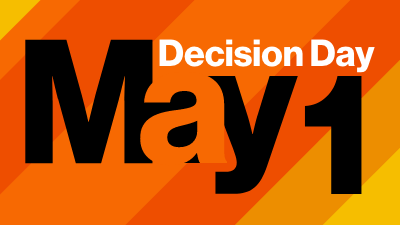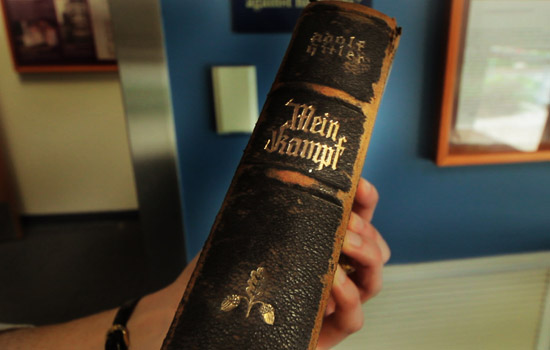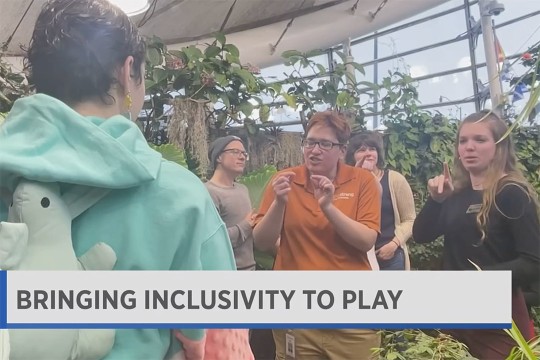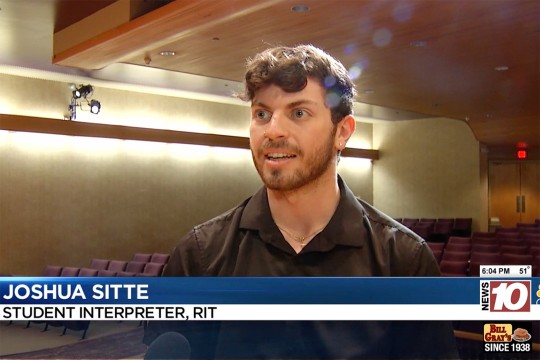Film uncovers personal impact of ‘Mein Kampf’
Hinda Mandell hopes money raised by Kickstarter organization leads to film’s completion
Matthew White
Hinda Mandell, assistant professor of communication in RIT’s College of Liberal Arts, is hoping to raise $5,000 by Dec. 14 through Kickstarter.com to complete her documentary short film on the personal impact that Hitler’s Mein Kampf has had on her family.
Growing up in her Massachusetts home, Hinda Mandell knew there was purpose behind why the book with the worn leather-bound cover was always placed in her family’s bookshelf upside down, and why her mother would scrub her “dirty” hands after accidentally touching it while reaching for something else. But it wasn’t until years later when Mandell began questioning her parents about the book—Adolf Hitler’s Mein Kampf—and its unique “position” in their home that she came to understand the pain and suffering associated with it.
This is the basis of a documentary short film being produced by Mandell, assistant professor of communication in Rochester Institute of Technology’s College of Liberal Arts. Mandell is hoping to raise $5,000 by Dec. 14 through Kickstarter.com to help cover the cost of film editing and other costs associated with completing the project. She expects the short film to be released by May 2013.
The Upside Down Book begins with the story of how the copy of Mein Kampf came into the family’s possession—it was acquired by Mandell’s great-uncle, who took the book out of a dead German soldier’s rucksack during World War II. The film follows Mandell’s foray into genealogy, interviews with her family about the book’s symbolism and a fact-finding trip to Germany.
“When I started this project in 2010, I had no idea what I would find,” she says. “I had the names of the original owners, their wedding date and the name of the city where they got married, but that’s it. I assumed the original owners would be dead, but with the help of genealogists, I located their two living descendants. That blew my mind.”
Mandell’s story has been published in the Los Angeles Times and Boston Globe, and she hopes the documentary helps tie it all together.
“I hope people who see the film will apply some of the themes to their own lives,” Mandell says. “I want this film to spark conversations about history, family, memories. There are invaluable connections that can happen when we investigate the myths surrounding family heirlooms and artifacts. The path begins with asking questions, taking notes, finding answers.”
Read Mandell’s story in the Los Angeles Times.
To see the movie trailer for The Upside Down Book.
To make a financial contribution to the project visit the Kickstarter page.















